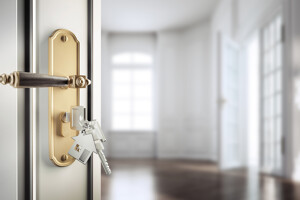Moving out of a rented apartment involves changes for both parties, landlord and tenant alike: It is not uncommon for the two parties to have differing views on what obligations the tenant must fulfil before moving out. The following guide clarifies the applicable law - and thus creates clarity for both the owner and the tenant.
Moving out does not automatically end the tenancy - this depends on the period of notice. Consequently, tenants must pay both the basic rent and any ancillary costs incurred until the end of the tenancy. The ancillary costs in particular are paid with a time delay; therefore, the owner will send the ancillary cost statement with the corresponding share to the tenant's new address. The owner may, but is not obliged to, accept a new tenant referred to him by the existing tenant. He can also insist that the flat remains empty until the end of the tenancy.

Experience shows that this aspect presents the greatest potential for conflict between the two parties. Many owners still insist on a general complete renovation, as was customary in the past. The tenant does not have to comply with this. The tenant only has to renovate if this is legally stipulated in the tenancy agreement and is actually necessary. Both points must be fulfilled.
An example: If the tenancy agreement contains rigid clauses on renovation, for example painting the walls every three or five years, the tenant does not have to renovate at all. These clauses have now been overturned in numerous court rulings and thus exempt the tenant from a renovation obligation across the board - even if the renovation is deemed necessary. In general, renovation is only mandatory for the tenant if he or she took over the flat in a renovated condition when moving in. If this was not the case, however, the tenant has the burden of proof.
The tenant should also fill any holes drilled in the wall. However, he should also be aware of what the law does not consider to fall under cosmetic repairs:
The legal distinctions between cosmetic repairs and normal wear and tear must be taken into account. Small scratches in the laminate do not have to be repaired by the tenant, these are expected signs of wear and tear. The same applies, for example, to wear and tear to the cooker of a fitted kitchen. Discoloured grouting or limescale on shower heads are expected wear and tear and do not have to be repaired by the tenant.
Of course, the tenant must hand over the flat in a swept clean condition, but not polished and shined. All keys to the flat are to be handed over to the landlord at the time of handover.